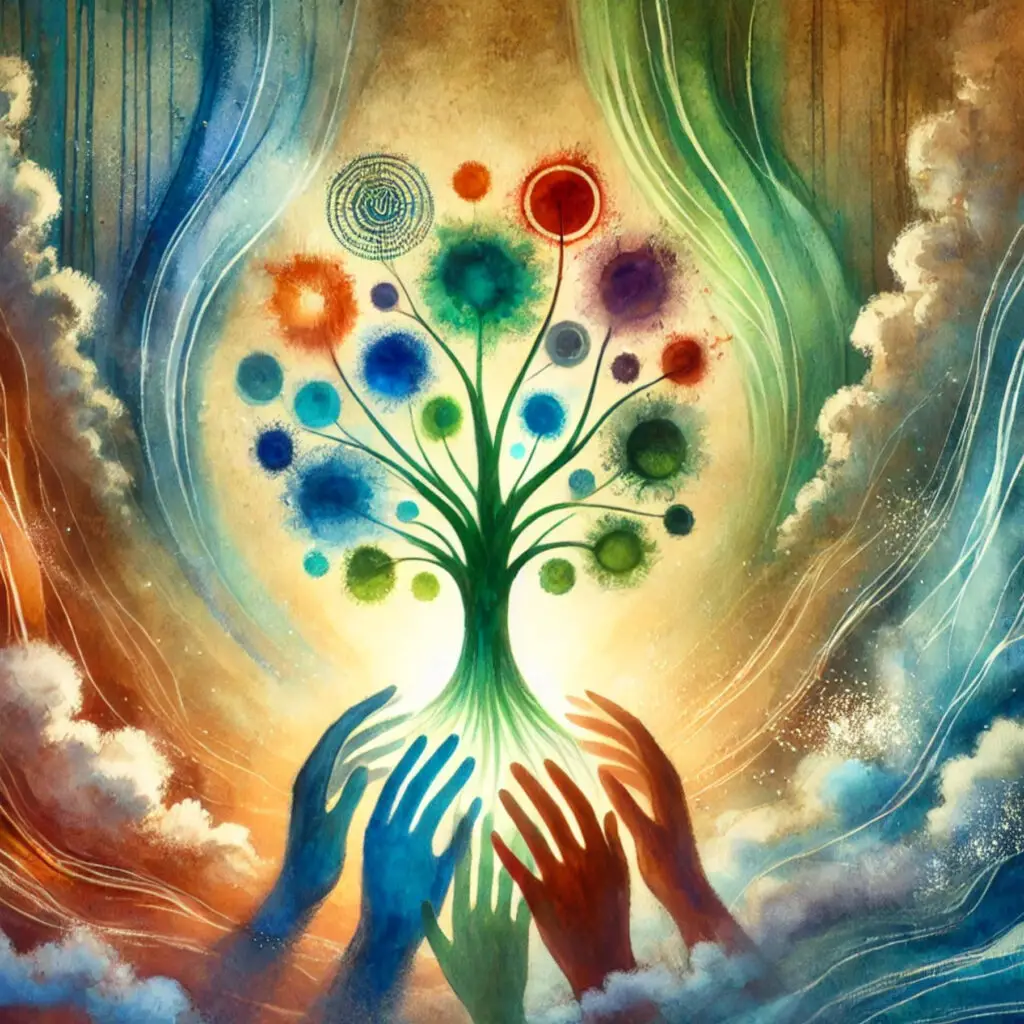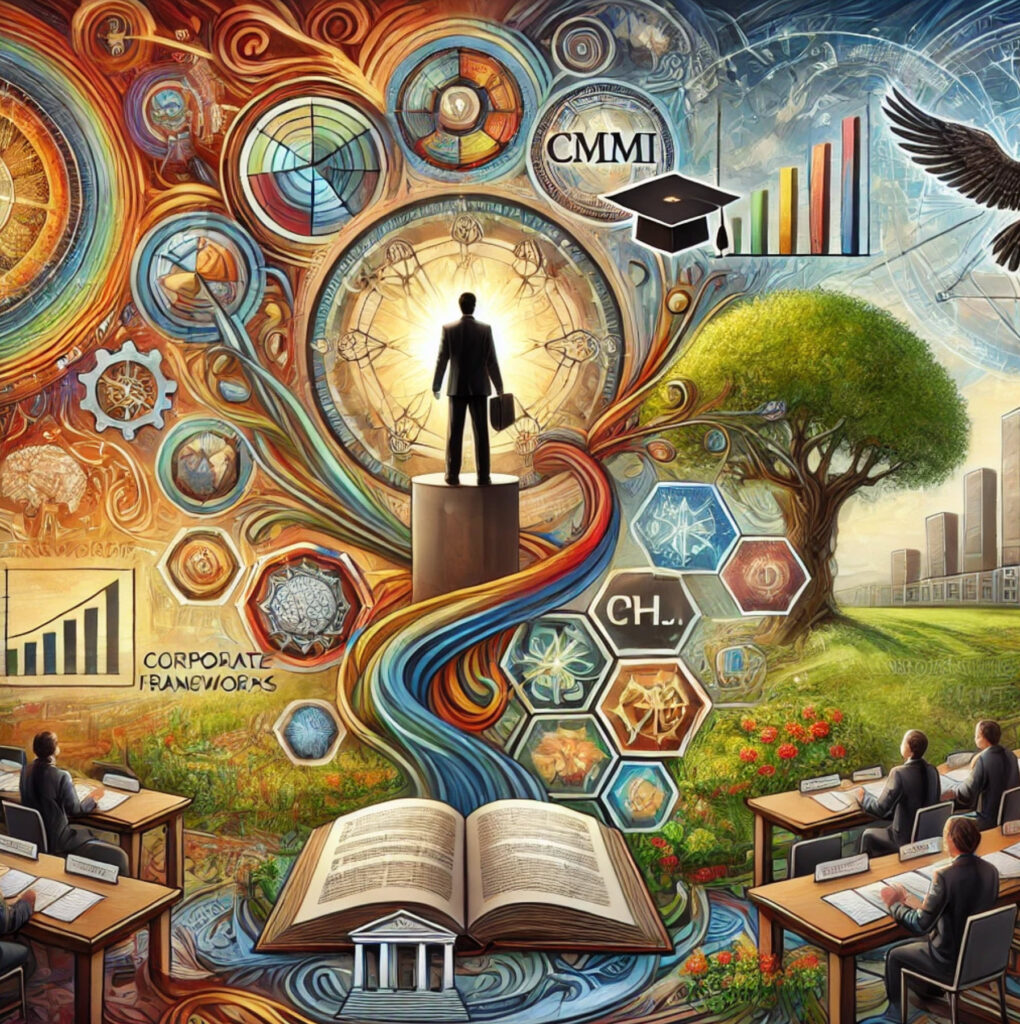
The Emergent Self is a space for exploring the dynamic and ever-evolving journey of personal growth, resilience, and connection. Through carefully crafted insights, diverse perspectives, and practical ideas, it is designed to inspire continuous learning and meaningful transformation. Grounded in the belief that growth is a collective experience, this work encourages curiosity, reflection, and collaboration—whether in classrooms, communities, or personal circles—as we unlock the potential to lead more authentic and fulfilling lives.
How The Emergent Self Is Different
The concept of emergence has been explored across psychology, philosophy, biology, and spirituality. While The Emergent Self shares its name with several prominent works, my approach is uniquely positioned as an accessible platform for personal growth, resilience, and connection. What follows is a comparison with other perspectives to highlight how the articles on this site are distinct.
Adrian van Kaam: A Foundational Perspective on the Self in Community
Adrian van Kaam emphasized the individual’s journey within the context of community and societal roles, offering a foundational perspective on self-awareness and integration. Like Van Kaam, I see continuous learning and transformation as essential. Yet whereas his work focuses on reflective depth within community structures, The Emergent Self highlights the collective experience of growth through collaboration and shared insight. My aim is to cultivate a space where transformation is not only individual but relational, unlocking the potential for more authentic and fulfilling lives.
William Hasker: Exploring Emergence in the Philosophy of Mind
Moving from psychology to philosophy, William Hasker’s The Emergent Self (1999) delves into the philosophy of mind, introducing “emergent dualism,” where consciousness arises as a non-physical entity dependent on the brain. His work addresses free will, mental causation, and personal identity within the philosophy of religion. While Hasker investigates the mind’s emergence from the brain, I focus on the emergence of the authentic self through personal and collective experience. His contributions frame important questions about consciousness; my site translates the theme of emergence into a broader, more practical context for everyday growth and resilience.
Peter Philippson: An Existential-Gestalt Approach
In the field of therapy, Peter Philippson’s The Emergent Self: An Existential-Gestalt Approach (2018) presents the self as a dynamic entity formed through relational contact and environmental interaction. His work underscores the importance of self-awareness in therapeutic growth. My perspective resonates with Philippson’s recognition of the evolving self and the significance of relationships, but extends beyond the therapy room. The Emergent Self is designed for a diverse audience, blending practical tools, inclusive exploration, and collective engagement to support transformation outside professional therapeutic frameworks.
Raymond L. Neubauer: Complexity and Behavioral Versatility in Nature
From human relationships to biological evolution, Raymond Neubauer’s Evolution and the Emergent Self (2011) examines emergence in terms of complexity, adaptability, and behavioral versatility in living systems. His analysis demonstrates how higher forms of organization arise in nature. While Neubauer situates emergence within evolutionary biology, my approach centers on human growth, resilience, and connection. Instead of focusing on adaptability in organisms, I emphasize the emergence of selfhood in contexts of relationship, shared reflection, and personal development.
My Unique Approach
Together, these works reveal the richness of “emergence” across disciplines—philosophical, psychological, biological, and therapeutic. What distinguishes The Emergent Self is its effort to bridge theory with practice. I focus on fostering resilience, meaningful connections, and continuous learning in a way that is inclusive and accessible.
By inviting reflection, encouraging collaboration, and offering practical insights, The Emergent Self creates space for transformation that is both personal and collective. This site serves as a meeting point between intellectual insight and lived experience—an exploration of what it means to become more authentic, connected, and alive.

Robert K. Green, Ph.D.
Robert K. Green, Ph.D., brings together corporate experience, higher education, and personal passions in his teaching and writing. Following a 22-year career in a Fortune 10 organization and subsequent consulting roles, he now focuses on helping students and readers think critically about identity, resilience, and transformation. His teaching draws on theories such as social constructionism, feminism, intersectionality, symbolic interactionism, and critical theory to open new ways of seeing the world. Beyond the classroom, he is an avid genealogist who has traced more than 25,000 family connections, reflecting his belief in the enduring power of story and relationship.
Academic Credentials
- Associate of Arts
- Bachelor of Science
- Master of Divinity
- Master of Business Administration
- Master of Arts in Human and Organizational Systems & Development
- Ph.D. in Human and Organizational Systems & Development
Professional Memberships
- American Psychological Association (APA)
- American Sociological Association (ASA)
- The Critical Thinking Community
In terms of my diverse career path, I have served various communities as a teacher, Roman Catholic priest, corporate leader. and university professor.

The evolution of my career has profoundly shaped who I am today, intertwining a diverse array of experiences that have enriched my understanding of life and its continuous flow of events. My journey—from serving as an elementary school teacher, Roman Catholic priest, corporate leader, university professor, and now as an author—has provided a multifaceted lens through which I interpret the world. These roles have enabled me to see life as a series of interconnected events, each segment holding its unique meaning and contributing to the larger narrative. In my forthcoming book, I delve into the EIR cycle, a framework I developed during my doctoral studies, which builds on the concept of segmenting time into meaningful events as described by Zacks and Swallow (2007). Their work highlights how our brain and mind track changes in our environment, perceiving events when salient features shift unpredictably or anomalies occur. My career has been a testament to this process—each transition and role has been an event shaped by goals, attention, and environmental shifts. These experiences have not only refined my ability to discern meaningful patterns in life’s continuous stream but also shaped my responses, fostering growth, resilience, and a deeper appreciation for the complexity of human existence.
Zacks, J. M., & Swallow, K. M. (2007). Event segmentation. Current Directions in Psychological Science, 16(2), 80-84. https://doi.org/10.1111/j.1467-8721.2007.00480.x
Interested in Chatting?
Let’s connect! Reach out to spark ideas, explore opportunities, and start meaningful conversations.
